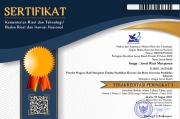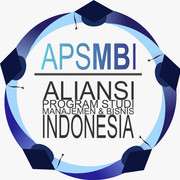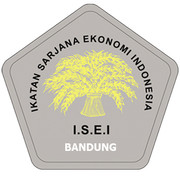A Systematics Review on the Impact of Emergency Supply Chain Management, Operational Efficiency, and Supply Chain Traceability on Public Health
Abstract
This systematic review aims to explore and analyze the intricate of Emergency Supply Chain Management (ESCM), Operational Efficiency (OE), and operational efficiency, and supply chain traceability (SCT) in ensuring public health during crises. The study systematically reviews and synthesizes relevant literature from Scopus, Web of Science, Emerald, and Elsevier, employing the Preferred Reporting Items for Systematic Reviews and Meta-Analyses (PRISMA) framework. A comprehensive search across databases yielded 3,755 articles, from which 57 articles were selected for detailed analysis based on inclusion and exclusion criteria. The selected articles were critically assessed for their contribution to understanding the impact of Emergency Supply Chain Management, operational efficiency, and supply chain traceability impact on public health outcomes. The systematic review reveals key insights into the multifaceted influence of ESCM, OE and traceability on public health. Findings encompass the adoption of advanced technologies, such as RFID and blockchain, to enhance traceability in medical supply chains. operational efficiency, providing information on how coordinated procedures and wise resource distribution support the prompt and efficient provision of medical resources in both emergency scenarios and regular business operations. Managerial initiatives and standardized policies emerge as pivotal factors in ensuring efficient public health logistics. Collaboration between non-governmental organizations (NGOs) and government agencies plays a crucial role in mitigating challenges and optimizing public health.
Keywords
Full Text:
PDFReferences
Ab Malik, M. H., Omar, E. N., & Maon, S. N. (2020). Humanitarian Logistics: a disaster relief operations framework during pandemic Covid-19 in achieving healthy communities. Advances in Business Research International Journal, 6(2), 101-113.
Ada, N., Ethirajan, M., Kumar, A., KEk, V., Nadeem, S. P., Kazancoglu, Y., & Kandasamy, J. (2021). Blockchain technology for enhancing traceability and efficiency in automobile supply chain—a case study. Sustainability, 13(24), 13667.
Altay, N., & Kovács, G. (2018). Innovation in humanitarian supply chains: A systematic review. Innovation, 3, 1-24.
Altay, N., Kovács, G., & Spens, K. (2021). The evolution of humanitarian logistics as a discipline through a crystal ball. Journal of Humanitarian Logistics and Supply Chain Management, 11(4), 577-584.
Babatunde, S., Oloruntoba, R., & Agho, K. (2020). Healthcare commodities for emergencies in Africa: review of logistics models, suggested model and research agenda. Journal of Humanitarian Logistics and Supply Chain Management, 10(3), 371-390.
Benzidia, S., Ageron, B., Bentahar, O., & Husson, J. (2019). Investigating automation and AGV in healthcare logistics: a case study based approach. International Journal of Logistics Research and Applications, 22(3), 273-293.
Bosona, T., & Gebresenbet, G. (2023). The role of blockchain technology in promoting traceability systems in agri-food production and supply chains. Sensors, 23(11), 5342.
Brown, A. S. (2019). Effective Humanitarian Logistics Delivery Using Space-Filling Curves Monterey, CA; Naval Postgraduate School].
Budak, A., Kaya, I., Karaşan, A., & Erdoğan, M. (2020). Real-time location systems selection by using a fuzzy MCDM approach: An application in humanitarian relief logistics. Applied Soft Computing, 92, 106322.
Chong, M., Lazo Lazo, J. G., Pereda, M. C., & Machuca De Pina, J. M. (2019). Goal programming optimization model under uncertainty and the critical areas characterization in humanitarian logistics management. Journal of Humanitarian Logistics and Supply Chain Management, 9(1), 82-107.
Dolinskaya, I., Besiou, M., & Guerrero-Garcia, S. (2018). Humanitarian medical supply chain in disaster response. Journal of Humanitarian Logistics and Supply Chain Management, 8(2), 199-226.
Gonzalez-Feliu, J., Chong, M., Vargas-Florez, J., de Brito Jr, I., Osorio-Ramirez, C., Piatyszek, E., & Quiliche Altamirano, R. (2020). The maturity of humanitarian logistics against recurrent crises. Social sciences, 9(6), 90.
Hajipour, V., Niaki, S. T. A., Akhgar, M., & Ansari, M. (2021). The healthcare supply chain network design with traceability: A novel algorithm. Computers & Industrial Engineering, 161, 107661.
Hart, C. (2018). Doing a literature review: Releasing the research imagination. Doing a Literature Review, 1-352.
Illahi, U., & Mir, M. S. (2021). Maintaining efficient logistics and supply chain management operations during and after coronavirus (COVID-19) pandemic: Learning from the past experiences. Environment, Development and Sustainability, 23, 11157-11178.
Jensen, L.-M., & Hertz, S. (2016). The coordination roles of relief organisations in humanitarian logistics. International Journal of Logistics Research and Applications, 19(5), 465-485.
Kashani, M. H., Madanipour, M., Nikravan, M., Asghari, P., & Mahdipour, E. (2021). A systematic review of IoT in healthcare: Applications, techniques, and trends. Journal of Network and Computer Applications, 192, 103164.
Khan, M., Imtiaz, S., Parvaiz, G. S., Hussain, A., & Bae, J. (2021). Integration of internet-of-things with blockchain technology to enhance humanitarian logistics performance. IEEE Access, 9, 25422-25436.
Khan, M., Khan, M., Ali, A., Khan, M. I., Ullah, I., & Iqbal, M. (2022). Digitalization for Fast, Fair, and Safe Humanitarian Logistics. Logistics, 6(2), 31.
Khan, M., Lee, H. Y., & Bae, J. H. (2019). The role of transparency in humanitarian logistics. Sustainability, 11(7), 2078.
Khan, M., Yong, L. H., & Han, B. J. (2019a). Emerging techniques for enhancing the performance of humanitarian logistics. Int. J Sup. Chain. Mgt Vol, 8(2), 450.
Khan, M., Yong, L. H., & Han, B. J. (2019b). A systematic review of performance enhancement of humanitarian logistics through transparency: Current status and perspectives. International journal of supply chain management, 8(2), 549.
King, N. (2012). Doing template analysis. Qualitative organizational research: Core methods and current challenges, 426, 426-450.
Knoops, L. (2019). Adoption of a Trackability Tool among Humanitarian Practitioners in Local Units: A Field Study on a Food Assistance Program in Colombia. In.
Kohrt, B. A., Mistry, A. S., Anand, N., Beecroft, B., & Nuwayhid, I. (2019). Health research in humanitarian crises: an urgent global imperative. BMJ global health, 4(6), e001870.
Kovács, G., & Falagara Sigala, I. (2021). Lessons learned from humanitarian logistics to manage supply chain disruptions. Journal of supply chain management, 57(1), 41-49.
Lal, A., Ashworth, H. C., Dada, S., Hoemeke, L., & Tambo, E. (2022). Optimizing pandemic preparedness and response through health information systems: lessons learned from Ebola to COVID-19. Disaster medicine and public health preparedness, 16(1), 333-340.
Liberati, A., Altman, D. G., Tetzlaff, J., Mulrow, C., Gøtzsche, P. C., Ioannidis, J. P., Clarke, M., Devereaux, P. J., Kleijnen, J., & Moher, D. (2009). The PRISMA statement for reporting systematic reviews and meta-analyses of studies that evaluate health care interventions: explanation and elaboration. Annals of internal medicine, 151(4), W-65-W-94.
Ma, J.-Y., Shi, L., & Kang, T.-W. (2023). The effect of digital transformation on the pharmaceutical sustainable supply chain performance: The mediating role of information sharing and traceability using structural equation modeling. Sustainability, 15(1), 649.
Masudin, I., Lau, E., Safitri, N. T., Restuputri, D. P., & Handayani, D. I. (2021). The impact of the traceability of the information systems on humanitarian logistics performance: Case study of Indonesian relief logistics services. Cogent Business & Management, 8(1), 1906052.
Masudin, I., Ramadhani, A., Restuputri, D. P., & Amallynda, I. (2021). The effect of traceability system and managerial initiative on Indonesian food cold chain performance: A Covid-19 pandemic perspective. Global Journal of Flexible Systems Management, 22(4), 331-356.
Mishra, D., Gunasekaran, A., Papadopoulos, T., & Childe, S. J. (2018). Big Data and supply chain management: a review and bibliometric analysis. Annals of Operations Research, 270, 313-336.
Modgil, S., Singh, R. K., & Foropon, C. (2020). Quality management in humanitarian operations and disaster relief management: A review and future research directions. Annals of Operations Research, 1-54.
Moher, D., Liberati, A., Tetzlaff, J., Altman, D. G., & Group*, P. (2009). Preferred reporting items for systematic reviews and meta-analyses: the PRISMA statement. Annals of internal medicine, 151(4), 264-269.
Moretto, A., & Macchion, L. (2022). Drivers, barriers and supply chain variables influencing the adoption of the blockchain to support traceability along fashion supply chains. Operations Management Research, 15(3-4), 1470-1489.
Moser-Mercer, B., Qudah, S., Ali Malkawi, M. N., Mutiga, J., & Al-Batineh, M. (2021). Beyond aid: Sustainable responses to meeting language communication needs in humanitarian contexts. Interpreting and Society, 1(1), 5-27.
Musamih, A., Salah, K., Jayaraman, R., Arshad, J., Debe, M., Al-Hammadi, Y., & Ellahham, S. (2021). A blockchain-based approach for drug traceability in healthcare supply chain. IEEE Access, 9, 9728-9743.
Negi, S., & Negi, G. (2021). Framework to manage humanitarian logistics in disaster relief supply chain management in India. International Journal of Emergency Services, 10(1), 40-76.
Page, M. J., McKenzie, J. E., Bossuyt, P. M., Boutron, I., Hoffmann, T. C., Mulrow, C. D., Shamseer, L., Tetzlaff, J. M., Akl, E. A., & Brennan, S. E. (2021). The PRISMA 2020 statement: an updated guideline for reporting systematic reviews. International journal of surgery, 88, 105906.
Petticrew, M., & Roberts, H. (2008). Systematic reviews in the social sciences: A practical guide. John Wiley & Sons.
Power, M. (2019). Infrastructures of traceability. In Thinking infrastructures (pp. 115-130). Emerald Publishing Limited.
Roy, V. (2021). Contrasting supply chain traceability and supply chain visibility: are they interchangeable? The International Journal of Logistics Management, 32(3), 942-972.
Schumann-Bölsche, D., & Schön, A.-M. (2015). A Raspberry in Sub-Saharan Africa? Chances and challenges of Raspberry Pi and sensor networking in humanitarian logistics. Procedia engineering, 107, 263-272.
Shafiq, M., & Soratana, K. (2019a). Humanitarian logistics and supply chain management-a qualitative study. LogForum, 15(1).
Shafiq, M., & Soratana, K. (2019b). Lean and Agile paradigms in humanitarian organizations' logistics and supply chain management. LogForum, 15(1), 139-153.
Sreedharan, V. R., Kek, V., Dhanya, M., Anjali, S., & Arunprasad, P. (2020). Understanding the role of logistics in humanitarian operations: key findings and analysis from literatures. International Journal of Logistics Systems and Management, 36(4), 463-494.
Tarrataca, L., Dias, C. M., Haddad, D. B., & De Arruda, E. F. (2021). Flattening the curves: on-off lock-down strategies for COVID-19 with an application to Brazil. Journal of mathematics in industry, 11, 1-18.
Tayyib, N. M. (2022). An action plan to address the mental health impact of COVID-19 on communities: Five effective strategies. Psychological Services, 19(S2), 5.
Torraco, R. J. (2005). Writing integrative literature reviews: Guidelines and examples. Human resource development review, 4(3), 356-367.
Tzenios, N. (2019). The Determinants of Access to Healthcare: A Review of Individual, Structural, and Systemic Factors. Journal of Humanities and Applied Science Research, 2(1), 1-14.
VanVactor, J. D. (2017). Healthcare logistics in disaster planning and emergency management: A perspective. Journal of business continuity & emergency planning, 10(2), 157-176.
Väyrynen, R. (2023). Complex humanitarian emergencies: Concepts and issues. Raimo Väyrynen: A Pioneer in International Relations, Scholarship and Policy-Making: With a Foreword by Olli Rehn and a Preface by Allan Rosas, 301-343.
Vega, D. (2018). Case studies in humanitarian logistics research. Journal of Humanitarian Logistics and Supply Chain Management, 8(2), 134-152.
Vega, D., & Roussat, C. (2015). Humanitarian logistics: the role of logistics service providers. International journal of physical distribution & logistics management, 45(4), 352-375.
Yáñez-Sandivari, L., Cortés, C. E., & Rey, P. A. (2021). Humanitarian logistics and emergencies management: New perspectives to a sociotechnical problem and its optimization approach management. International Journal of Disaster Risk Reduction, 52, 101952.
Yousefi, S., & Tosarkani, B. M. (2022). An analytical approach for evaluating the impact of blockchain technology on sustainable supply chain performance. International Journal of Production Economics, 246, 108429.
DOI: https://doi.org/10.17509/image.2024.013
Refbacks
- There are currently no refbacks.
Copyright (c) 2024 Gilbert Korku Akubia, Vanessa Gaffar, Denny Andriana

This work is licensed under a Creative Commons Attribution-ShareAlike 4.0 International License.
Image : Jurnal Riset Manajemen is licensed under a Creative Commons Attribution-ShareAlike 4.0 International License
View My Stats



